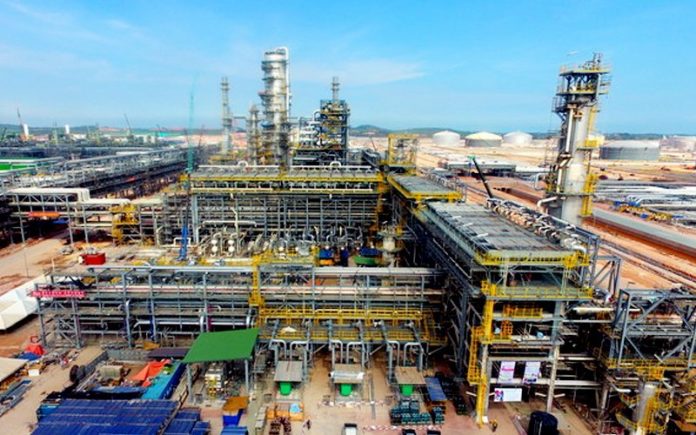
KUALA LUMPUR: The Brent crude oil price is likely to rise to US$60 per barrel in 2021, thus improving Petronas’ revenue outlook next year, said Axi chief global market strategist Stephen Innes.
He does not foresee further downgrades for Petronas’ sovereign ratings after credit rating agency Fitch downgraded the national oil firm’s long-term foreign and local currency issuer default ratings (IDRs) to BBB+ from A- yesterday.
“I do not think that it was too much of a shocker in a sense as the company is 100% state-owned. When the parents get downgraded, it usually sounds the alarm for other state-owned companies under government purview.
“Typically, a downgrade makes it more difficult to raise cash on the open markets but, in this case, Petronas’ debt is government-backed,” he told Bernama in an interview via email today.
Petronas’ sovereign ratings downgrade was in line with the downgrade of Malaysia’s IDRs to BBB+ from A- on Dec 4, also with a stable outlook.
Fitch said Petronas’ IDRs continued to be capped by Malaysia’s IDRs, as per Fitch’s government-related entities rating criteria as the company is 100%-owned by the state, which exerts significant influence over its operating and financial policies.
Over the last five years, Petronas accounted for more than 15% of the Malaysian government’s revenue.
Meanwhile, Innes said Petronas’ biggest issue was the lack of petrodollar revenue per barrel and little to do with how the company is managed, as it remains on solid footing given its very conservative profile.
He noted that the rise in oil prices would naturally increase petrodollar revenue and will go a long way towards funding the government’s coffers and improving Petronas’ debt rating outlook.
“Petronas does not spend crazily. Rather, it looks for cost-cutting optimisation to see it through this current Covid-19-triggered downturn,” said Innes.
Meanwhile, Bank Islam Malaysia Bhd chief economist Mohd Afzanizam Abdul Rashid also concurred that the downgrade in Petronas’ IDRs was due to the fact that it is 100% owned by the government.
“Therefore, the government can exert significant influence over its operating and financial policies.
“Nonetheless, the standalone credit profile assessed by Fitch is at AA-, reflecting the company’s very strong financial profile, as well as its large-scale and integrated oil and gas operations,” he told Bernama.
In a nutshell, Afzanizam said Petronas’ business/financial condition remains resilient.
“Capital expenditure would be around US$45 billion to US$50 billion over the medium term.
“The downgrade reflects some technicalities because the IDR rating is capped by the sovereign rating. Otherwise, Petronas’ businesses are very much resilient,” he added.
CLICK HERE FOR THE LATEST DATA ON THE COVID-19 SITUATION IN MALAYSIA



